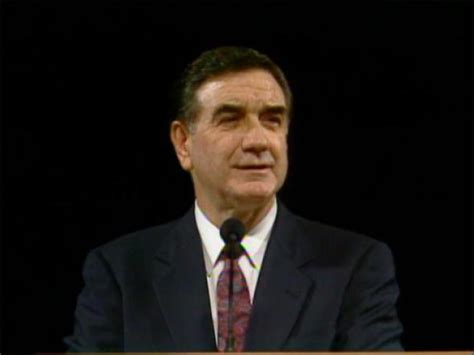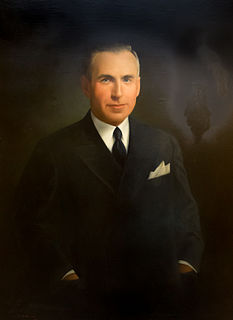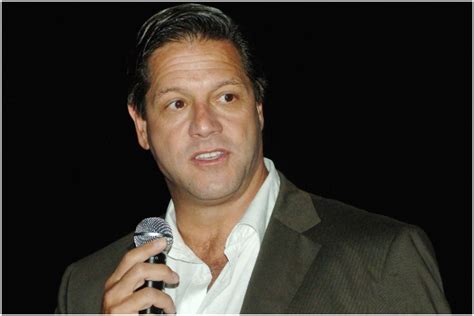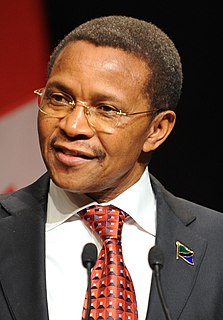A Quote by Aiden Wilson Tozer
Rules for Self Discovery: 1. What we want most; 2. What we think about most; 3. How we use our money; 4. What we do with our leisure time; 5. The company we enjoy; 6. Who and what we admire; 7. What we laugh at.
Related Quotes
How we use our leisure is equally as important to our joy as our occupational pursuits. Proper use of leisure requires discriminating judgment. Our leisure provides opportunity for renewal of spirit, mind, and body. It is a time for worship, for family, for service, for study, for wholesome recreation. It brings harmony into our life.
Money is a mystery. Not only is our behavior with respect to money sometimes puzzling and erratic, but our feelings about money are often contradictory, illogical, deep-rooted, and scarcely known even to our most secret selves. We are getting better at handling money, but what it means to us, how we use it to express ourselves, and how it can help us become all that we are meant to be remain murky issues.
Our business is not based on having information about you. You’re not our product. Our product are these, and this watch, and Macs and so forth. And so we run a very different company. I think everyone has to ask, how do companies make their money? Follow the money. And if they’re making money mainly by collecting gobs of personal data, I think you have a right to be worried.
That which you or I think is most unique about ourselves we hide. In ordinary discourse, in the normal state, we share our common self, our superficial self. Yet what is most unique about us is what has the greatest potential for bonding us. When we share our uniqueness, we discover the commonality in greatness that defines everyone on the planet.
My agent called and said, 'How do you feel about a pirate movie? I mean, how often are you going to get that call? It's sort of the singularly most failed genre of our time, but I thought it had to be attempted one more time. I think there's something rebellious about pirates, something revolutionary about them. They came out of a time when things were oppressive; you could get hung for stealing a loaf of bread. For me, the Pirates films are about when it's right to break the rules to achieve what you want.
Our job as humans is to hold on to the thoughts of what we want, make it absolutely clear in our minds what we want, and from that we start to invoke one of the greatest laws in the Universe, and that's the law of attraction. You become what you think about most, but you also attract what you think about most.
Most of our difficulties, our hopes, and our worries are empty fantasies. Nothing has ever existed except this moment. That's all there is. That's all we are. Yet most human beings spend 50 to 90 percent or more of their time in their imagination, living in fantasy. We think about what has happened to us, what might have happened, how we feel about it, how we should be different, how others should be different, how it's all a shame, and on and on; it's all fantasy, all imagination. Memory is imagination. Every memory that we stick to devastates our life.
What is the benefit of fasting in our body while filling our souls with innumerable evils? He who does not play at dice, but spends his leisure otherwise, what nonsense does he not utter? What absurdities does he not listen to? Leisure without the fear of God is, for those who do not know how to use time, the teacher of wickedness.
We design our own programmes; we take leadership. Of course the donors come in to support us, to complement our efforts. Our responsibility to the donors is about accountability: about how we use that money. If somebody gives you his money, definitely he will be interested in knowing how you spend the money.
Just as our fingerprints are one-of-a-kind, so is our identity. Each of us is a once-only articulation of what humans can be. We are rare, unmatched, mysterious. This is why the quality of openness is so crucial to our self-discovery. We cannot know ourselves by who we think we are, who others take us to be, or what our driver's license may say. We are fields of potential, some now actualized, most not yet.
Ask how you’d live your life differently if you knew you were going to die soon, then ask yourself who those people you admire are and why you admire them, and then ask yourself what was the most fun time in your life. The answers to these questions, when seen, heard, and felt, provide us with an open doorway into our mission, our destiny, our purpose.
The Most Secret Quintessence of Life is an original work filled with rich, new research, relying on important primary literature which has not, until now, been plumbed and digested. In this book, Chandak Sengoopta offers both a history of hormone discovery and a chronicle of how this discovery transformed our concepts of the body and how our existing concepts of sex and sexuality, in turn, informed our concepts for understanding hormones.






































